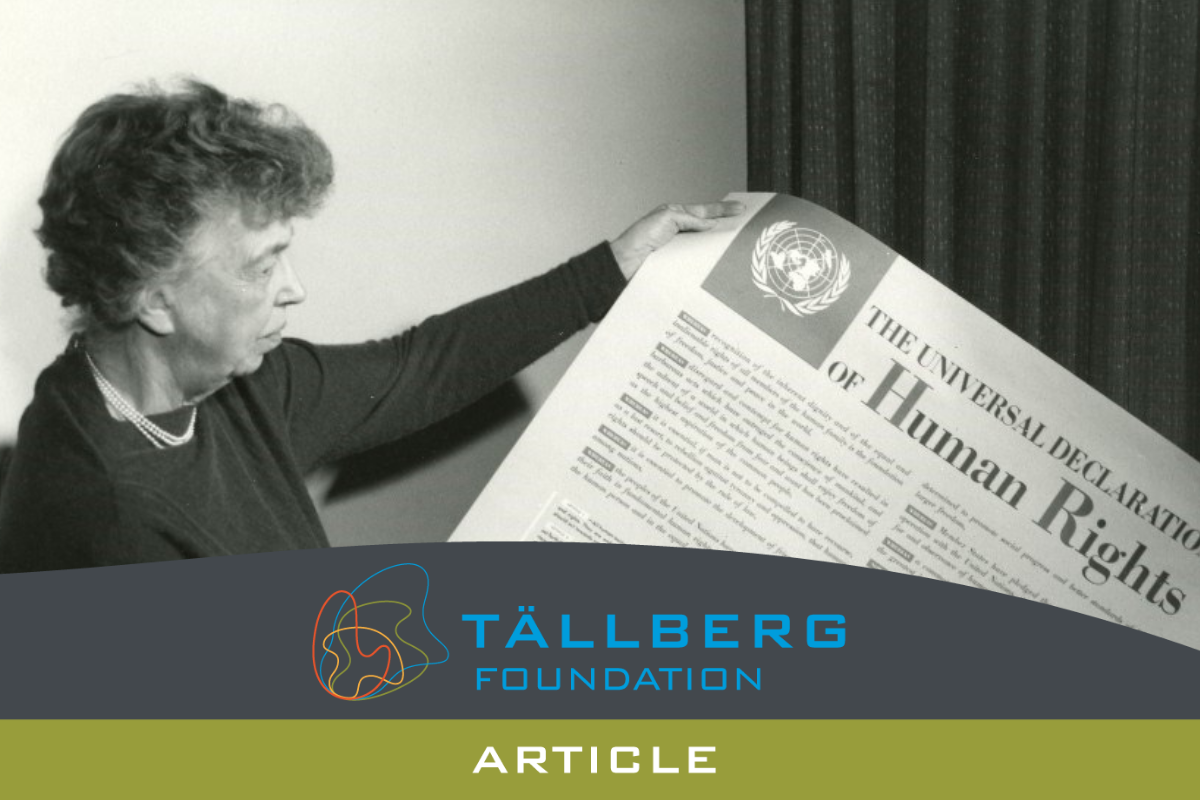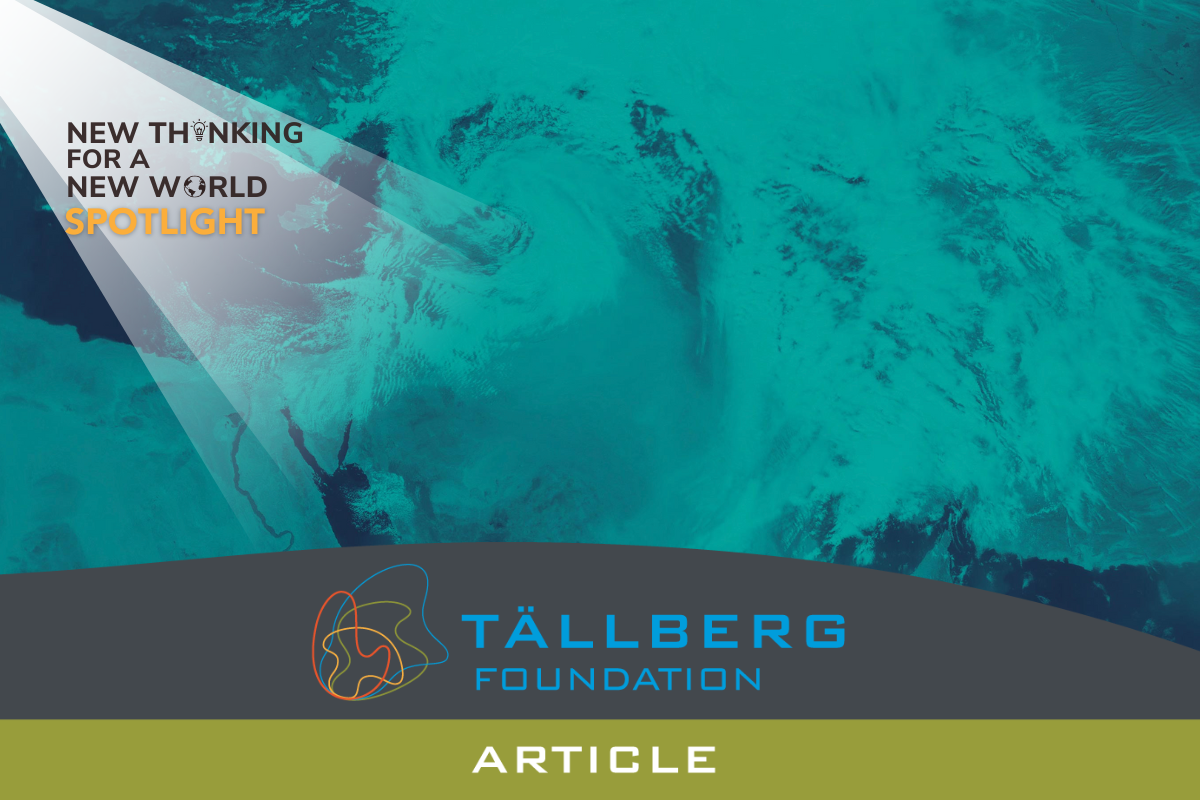“What we’re talking about is mentally enhancing humans…about building a new type of species, a hybrid human, in which part of our brain will be devices that would be running artificial intelligence algorithms and connected to huge data databases.” — Rafael Yuste
“Setting global expectations around how this technology can be developed and how the downside risks can be managed—and also creating an international human rights system that will ensure that individual people of the world have the right to protections for misuse of this technology—is exceptionally important.” — Jared Genser
Science fiction writers have long imagined a world where technology could read our innermost thoughts, overcome free will, or create cyborgs that would dominate society. Is fiction becoming non-fiction?
Rafael Yuste, a leading neuroscientist whose laboratory is at Columbia University, insists it is. “By changing neural activity and decoding it, in principle, we can decode [human] minds and change minds,” he explained in a recent New Thinking for a New World podcast. “There’s neurotechnology to decode or to read, and neurotechnology to activate or to write,” by which he means actively causing someone to act in a particular way or to make a particular choice. “In order to make us change our minds, then you have to actually activate neuronal circuits with a lot of precision. And this is something that we can start to do in animals…What we can do in a mouse today, we should be able to do in any human tomorrow.”
Of course, such technology has huge ethical, societal, political and economic implications. What Yuste describes has almost unfathomable upsides and downsides—everything from a new renaissance and flowering of human potential to global enslavement by powers intent on creating a real version of Huxley’s Brave New World. The good news is that the potential for abuse has animated a dynamic partnership between Yuste and Jared Genser, a prominent human rights lawyer.
“I’m always worried when I see new technologies because of the ways in which governments and private actors can instrumentalize these kinds of technologies for nefarious purposes,”says Genser. He adds that uncomfortable examples of ways the new neuroscience is being misused are already at play: “In China there are already several schools that have been piloting a brain-computer interface that children are wearing that tell the teacher in the front of the room…which children are concentrating based on their brainwaves and which ones are not. And similar technology has been deployed already in several Chinese factories to monitor the efficiency of workers.” He points out that these and other examples based on neuroscience that “reads” would likely pale to insignificance compared to what could be done with neuroscience that “writes” or overrides human free will.
What can be done? Or, more precisely, who can do what in order to avoid what could be a looming dystopia?
Start with a definition of what rights Yuste and Genser believe ought to be recognized and protected*:
- The Right to Personal Identity: Boundaries must be developed to prohibit technology from disrupting the sense of self; when individuals are connected with digital networks, the line between a person’s consciousness and external technological inputs must not be blurred.
- The Right to Free Will: Individuals should have ultimate control over their own decision making, without unknown manipulation from external technologies.
- The Right to Mental Privacy: Any data obtained from measuring neural activity should be kept private; the sale, commercial transfer, and use of neural data should be strictly regulated.
- The Right to Equal Access to Mental Augmentation: Guidelines based on justice and equality of access should regulate the development and applications of mental-enhancement neuro-technologies.
- The Right to Protection from Algorithmic Bias: Countermeasures to combat bias should become the norm for machine learning.
What’s needed, says Genser, is a kind of “lockbox around your brain and the ability of people to read it or write to it without your direct, and explicit, and informed consent.” Amazingly, that is not the case today anywhere on earth. That’s where the partnership between a neuroscientist and a human rights lawyer comes in: one knows the science and one knows the system. Can they together jump start a global conversation that could lead to action that codifies these rights and commits key countries and global institutions to respect them?
“My dream would be for the UN to take the Universal Declaration of Human Rights, which hasn’t been touched since its proclamation in 1948, and bring it up to date to the 21st century incorporating protection for all these challenges,” says Yuste. “Then you could imagine this could be an instrument for convention or committees of different countries that will regulate at an international level [the] development and deployment of neurotechnology.” He cites international regulations of atomic energy, as well as chemical and biological weapons, as possible templates to model new restrictions on neurotechnology applications.
The problem, admits Genser, is that “the international community is simply not engaged in or discussing these issues in any meaningful way.” Changing that will require a full court press: efforts to mobilize the United Nations, to develop momentum for a global treaty, to encourage individual countries to protect their citizens’ rights, to persuade leading companies operating in the sector to self-police ethical considerations, and to educate citizens about their rights and encourage them to press their governments to act.
“Undoubtedly, it’s an uphill struggle,” says Genser, “because oftentimes when you see the international community being aware of even global crises that are on their doorstep, they still hesitate and can’t mobilize the political will to act. But at the same time, failure really is not an option here… if the international community doesn’t take action, the consequences could be terrible.”
Yuste is even more emphatic, “Not doing something is not acceptable…I’m a firm believer of acting locally, but thinking globally,” and he hopes that individuals—in governments, in multilateral organizations, in companies—can begin to raise awareness and demand action.
An obvious question is time: how immediate are these issues? Yuste offers a two-part answer, based on his distinction between reading and writing neurotechnologies. “For the decoding, I think it’s pretty urgent. There are already portable brain scanners being sold [that] could theoretically be decoded with artificial intelligence for a low level investigation in integration of people’s mental state…For the writing part, we have more time, I would say at least a decade or two.”
But he points out that there’s not much time to consider how to cope with technologies that have the potential to transform humanity. “I don’t think we should be waiting 10 or 20 years to see that coming, but we should start thinking hard today as to what type of human we want to be.”
What kind of human do YOU want to be?
*See NeuroRights Initiative, Neurotechnology Center at Columbia University
Both Rafael Yuste and Jared Genser are past winners of the Tällberg-SNF- Eliasson Global Leadership Prize and recently spoke with Alan Stoga as part of the Tällberg Foundation’s “New Thinking for a New World” podcast series. Hear their whole conversation here or find us on a podcast platform of your choice (Apple Podcast, Spotify, Acast, Stitcher, Libsyn, etc).
ABOUT OUR GUEST
 Jared Genser is an international human rights lawyer who has spent his career practicing law, engaging in serious scholarship, and teaching and mentoring the next generation of human rights lawyers. Referred to by the New York Times as “The Extractor” for his work freeing political prisoners worldwide, his client list has included people like Nobel Peace Prize Laureates Desmond Tutu, Liu Xiaobo, and Elie Wiesel. Jared has recently been designated as Special Adviser on the Responsibility to Protect by the Organization of American States (OAS). He is also co-Executive Producer of a dramatic TV series based on his life being developed with actor Orlando Bloom for Amazon Studios. He has taught as an Adjunct Professor of Law at Georgetown University Law Center and the University of Michigan and University of Pennsylvania law schools and his public interest law firm Perseus Strategies has hosted more than 50 interns in the last decade. And Genser has published three books on the topics of arbitrary detention, mass atrocity crimes, and the UN Security Council and has a forthcoming book on reforming the UN human rights system.
Jared Genser is an international human rights lawyer who has spent his career practicing law, engaging in serious scholarship, and teaching and mentoring the next generation of human rights lawyers. Referred to by the New York Times as “The Extractor” for his work freeing political prisoners worldwide, his client list has included people like Nobel Peace Prize Laureates Desmond Tutu, Liu Xiaobo, and Elie Wiesel. Jared has recently been designated as Special Adviser on the Responsibility to Protect by the Organization of American States (OAS). He is also co-Executive Producer of a dramatic TV series based on his life being developed with actor Orlando Bloom for Amazon Studios. He has taught as an Adjunct Professor of Law at Georgetown University Law Center and the University of Michigan and University of Pennsylvania law schools and his public interest law firm Perseus Strategies has hosted more than 50 interns in the last decade. And Genser has published three books on the topics of arbitrary detention, mass atrocity crimes, and the UN Security Council and has a forthcoming book on reforming the UN human rights system.
 Professor Rafael Yuste is contributing to a seminal paradigm shift in neuroscience, and is a leader in exploring the ethical consequences emerging from the confluence of neurotechnology and artificial intelligence. In selecting Yuste, the jury not only recognized his vision and leadership within the scientific community, but his deep commitment to promoting a global conversation about the ethical implications of rapidly accelerating neuro-technology. His work to bring together diverse thinkers in neuroscience, philosophy, law, industry and elsewhere to develop new thinking about “neuro rights” is critical to our future.
Professor Rafael Yuste is contributing to a seminal paradigm shift in neuroscience, and is a leader in exploring the ethical consequences emerging from the confluence of neurotechnology and artificial intelligence. In selecting Yuste, the jury not only recognized his vision and leadership within the scientific community, but his deep commitment to promoting a global conversation about the ethical implications of rapidly accelerating neuro-technology. His work to bring together diverse thinkers in neuroscience, philosophy, law, industry and elsewhere to develop new thinking about “neuro rights” is critical to our future.
Rafael is Professor of Biological Sciences and Neurosciences at Columbia University, New York. A Spanish-American neurobiologist, he is one of the initiators of BRAINI. Launched in 2013, the goal of this multidisciplinary, U.S. government funded initiative is to transform the study of the brain with the development of radically more powerful recording technologies using novel physics and engineering, deeply integrated with theory. This initiative has spawned an important series of global counterparts.
Born in Madrid, Rafael originally trained as a medical doctor, later shifting to neuroscience (Rockefeller University) and physics (Bell Labs). This unusual multidisciplinary background contributed to the concept that eventually underpinned BRAINI and also underpins his more recent focus on the intersection of neuroscience and AI.





0 Comments